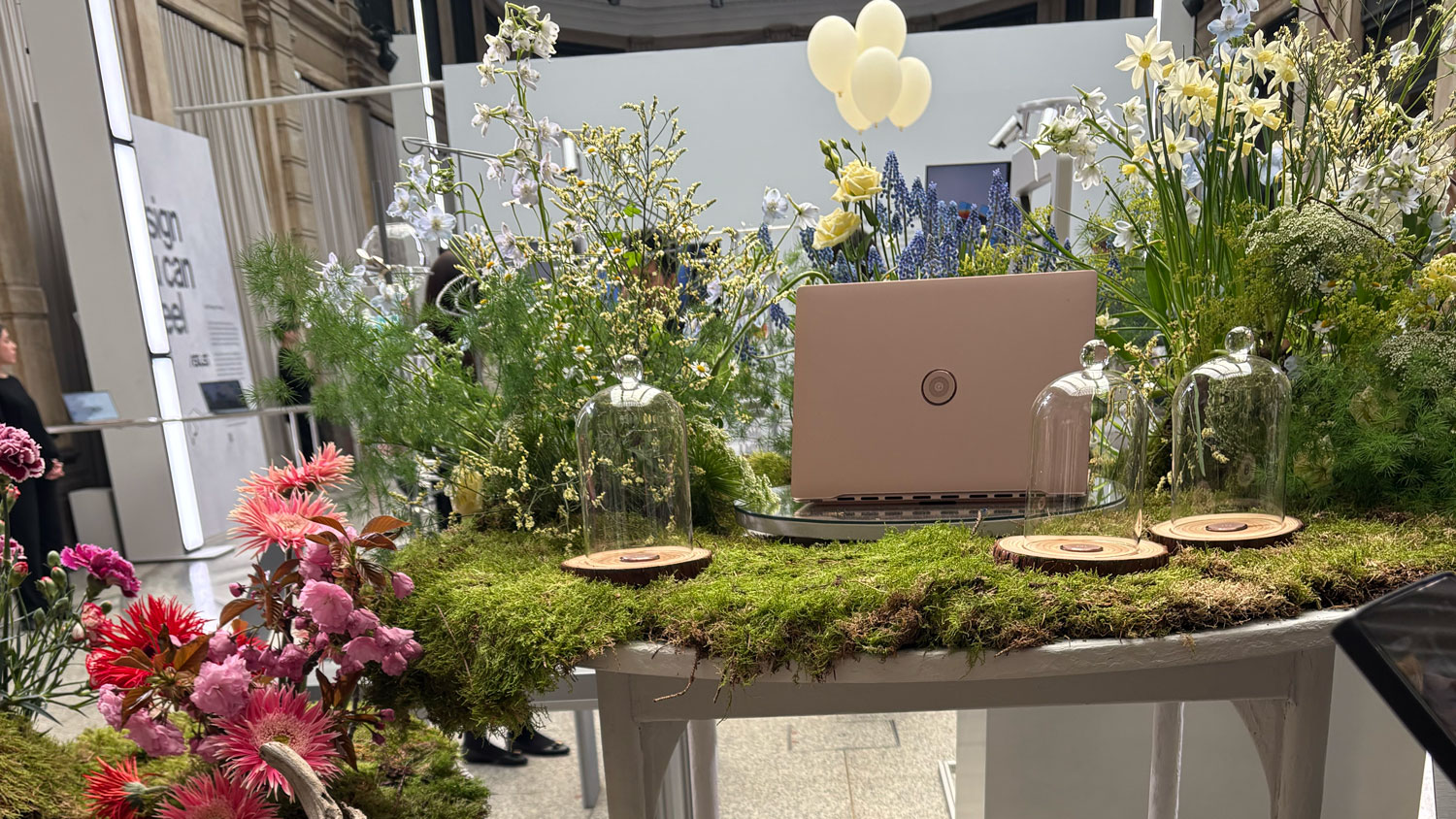Discover your creative calling
Join veteran designer Fred Deakin and UAL students on an intensive creative workshop, right here.
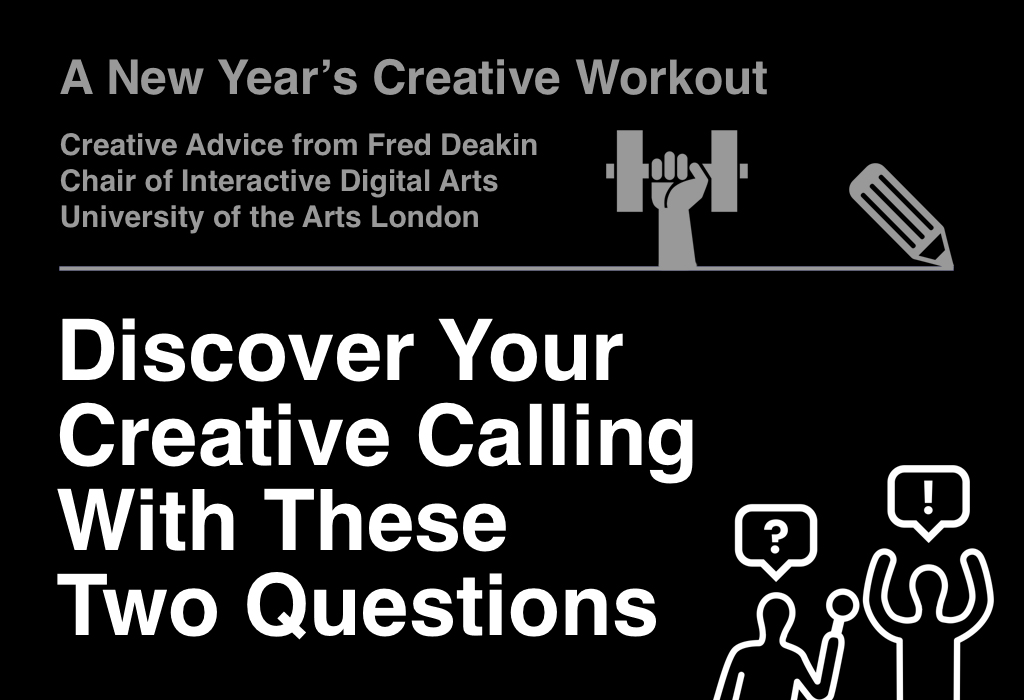
As 2016 gradually gets into gear, Fred Deakin – creative veteran and current Chair of Interactive Digital Arts at University of the Arts London – is hosting a bold education experience at Somerset House taking a group of 60 UAL students through an intensive two week workshop to help participants harness the power of interdisciplinary collaboration and rapidly launch their own start-up projects.
If you're feeling in need of a creative pick me up, we will be publishing extracts from the workshop daily, with tips, tricks and tactics from Fred Deakin himself on how to find your creative calling and make best use of your skills to make a difference in 2016 and beyond. You can check out yesterday's update here.
Today's workshop encourages participants to reflect deeply on what it is they really want to do with their creative skill and their time on this planet.
Finding your creative calling is a tricky business
A lucky few creatives are instinctively in touch with their creative calling, as though they were born with the knowledge of where their skills could be best put to use.
For the majority of us however, trying to fathom where we want to devote our creative energies and focus our life's work can prove a paralysingly daunting task.
It's rare that creative education ever encourages us to pause and reflect on what it is that really, truly motivates us. This lack of self-awareness can often leave us vulnerable to the forces of external influence.
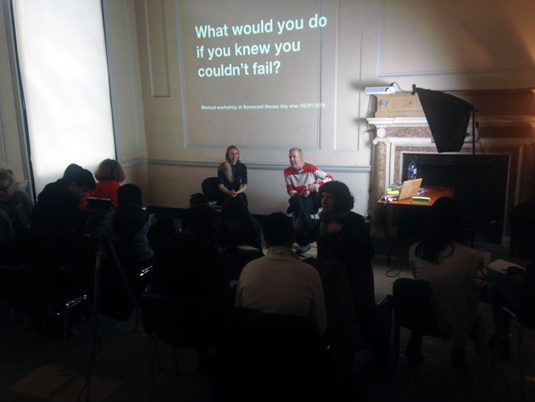
When we only look outwards – to where the financial or social status rewards might lie, for example – we miss out on tapping in to the deep well of inspiration and motivation that is our personal beliefs and values.
Get the Creative Bloq Newsletter
Daily design news, reviews, how-tos and more, as picked by the editors.
Is it any wonder that so many of us struggle with procrastination problems, when we're trying to work on projects that don't resonate with what we believe in?
Make a postive change
Most of us want to use our creative gifts to make a positive change on the world. But where to start? With so many huge problems in the world it can seem selfish and self-indulgent to get stuck into projects that aren't solving something as terrible as world hunger or bringing about world peace.
As Jean Paul Flintoff explains in his School of Life book 'How to Change the World', this self-defeating thinking doesn't really help us leverage our unique abilities for good:
"We won't be motivated to change the world if doing so threatens to be a dreary obligation – but if we can find ways that to do it that overlap with the things we most enjoy in life, we’re more likely to stick to it."
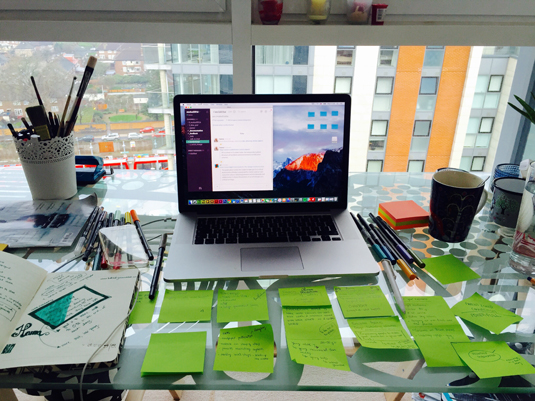
When we look outwards for things that we think we 'should' care about, we risk taking on a challenge that won't really get us out of bed in the morning and excited by the prospect of turning off the telly in favour of a long day's work.
Sometimes, we can make the biggest difference by starting a little smaller and focussing with what's right in front of us.
If for example, you're a talented graphic designer, with a passion for baking and a burning desire to reduce the loneliness of elderly people in your neighbourhood, there may well be a truly exciting and perfectly noble project where these three of interests overlap.
When did you last feel truly alive?
One way to tap in to this intrinsic motivational energy is to look out for the moments in life – at work or play – where everything seems to click in to place and you feel completely absorbed in a task or activity.
Think back over the last few months. When did you last experience this feeling of being truly alive? When did your mind, soul and senses last jump to attention and life felt inspiring and exciting?
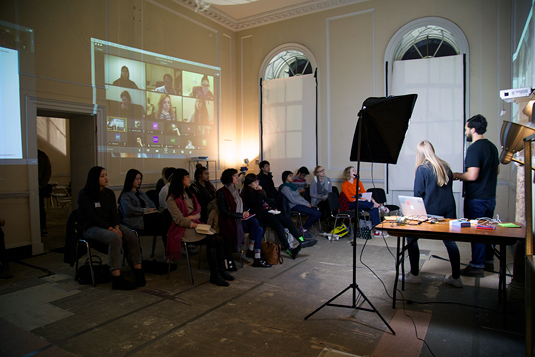
It might've been when doing something as banal as walking in the park on a crisp winter day or chopping vegetable or could've be something as wild as taking your fist bungee jump.
There might have been a project or task you were doing that set your mind alight, or you might have managed to do something for someone else that made you feel fantastic for days. Hopefully, you’ll be able to think of at least three examples.
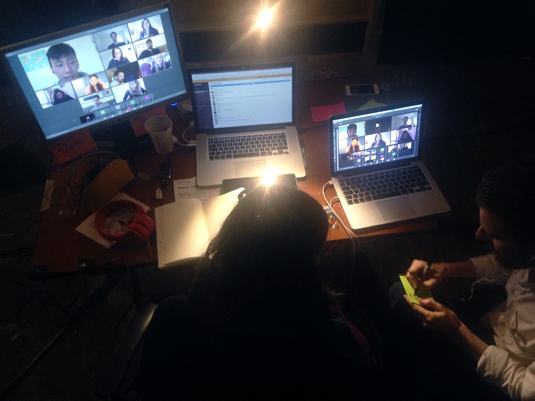
The trick to using these experiences as a key to tap into what really motivates you is to understand why these moments stand out so much. By yourself or with a partner (to help you dig deep to find answers) take each moment in turn and ask yourself 'why did this make you feel alive?'.
Then take your answer and ask 'why is this important to me?'. Continue on this track until you’ve interrogated your answers with another 'why’' 4 or 5 times.
The final answer you get to after this chain of questioning should shed some light on what it is that really matters to you deep down – which may well be a suitable starting point for your life's work.
What would you do it you knew you couldn’t fail?
Typically, it's not only a lack of self inner-understanding that gets in the way of creative projects that could change the world. More often than not we suffer from a form of limiting, fear-of-failure induced self-censorship.
The moment we even think of dreaming big about the changes we would like to make in the world, those practicality goblins within awaken – asking who indeed you think you are to imagine you can do something so ambitious!
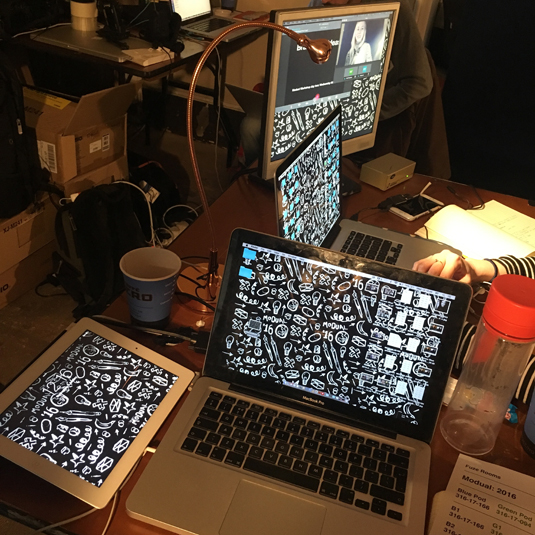
In order to sidestep this self-defence mechanism and reflect further on your creative calling, it's often useful to ask yourself what change would you like to make in the world if you knew you couldn't fail.
By removing yourself from the practicalities of the situation, you might for a moment open your mind up enough to hit upon a creative cause that you can really care about. This can be the kernel of your most important brief ever.
Students in the workshop today, discussed these two questions in pairs and were then asked to report back to the group. By mapping out and clustering the answers on a wall, we were able to find a number of areas of common interest that will form the first working teams for the workshop.
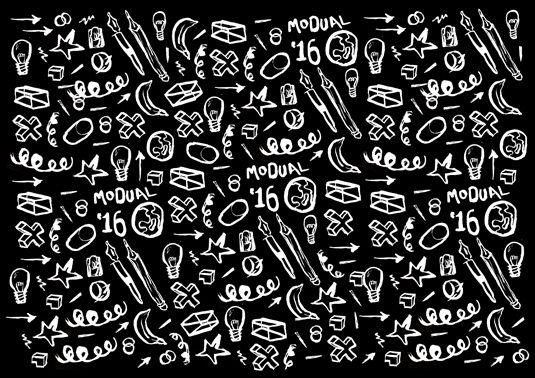
You can replicate this process by seeing where your inner interests overlap with a group of your peers. You can then use this overlap to develop one or more creative briefs with your team that you can commit to working on together – just as our students will start to do tomorrow!
Keep up with the action
Fred Deakin's workshop will be running from 5-15th of January. Stay tuned for more tips and tricks on raising your creative game in 2016.
To hear more about the workshop and to see how students from UAL are progressing with improving their collaboration skills, check out the Modual: 2016 workshop homepage, Twitter and Instagram.
If you'd like to hear more of the workshop content and make use of a video course presented by Fred, sign up for the free content on the workshop's site.
Like this? Read these!

Thank you for reading 5 articles this month* Join now for unlimited access
Enjoy your first month for just £1 / $1 / €1
*Read 5 free articles per month without a subscription

Join now for unlimited access
Try first month for just £1 / $1 / €1
The Creative Bloq team is made up of a group of design fans, and has changed and evolved since Creative Bloq began back in 2012. The current website team consists of eight full-time members of staff: Editor Georgia Coggan, Deputy Editor Rosie Hilder, Ecommerce Editor Beren Neale, Senior News Editor Daniel Piper, Editor, Digital Art and 3D Ian Dean, Tech Reviews Editor Erlingur Einarsson, Ecommerce Writer Beth Nicholls and Staff Writer Natalie Fear, as well as a roster of freelancers from around the world. The ImagineFX magazine team also pitch in, ensuring that content from leading digital art publication ImagineFX is represented on Creative Bloq.
